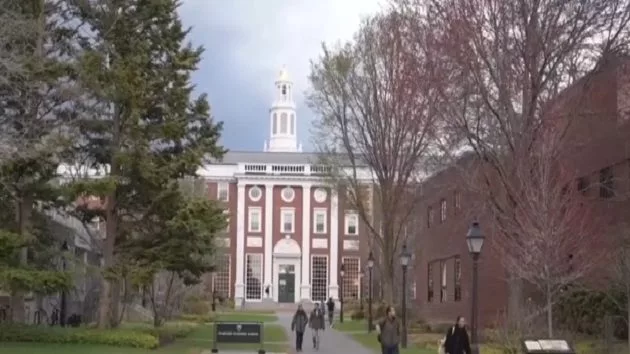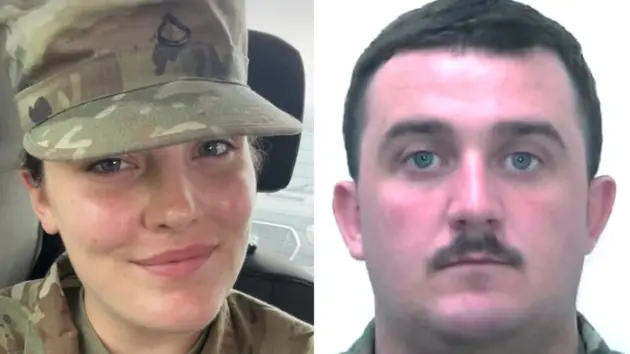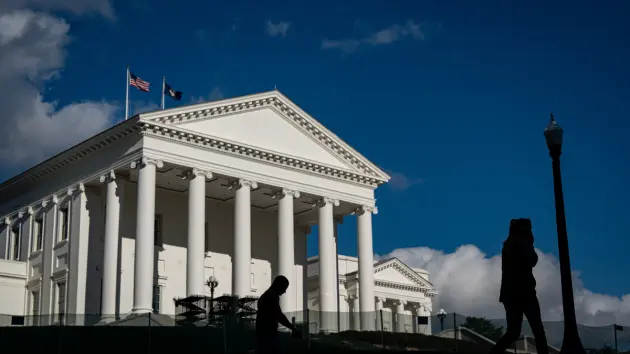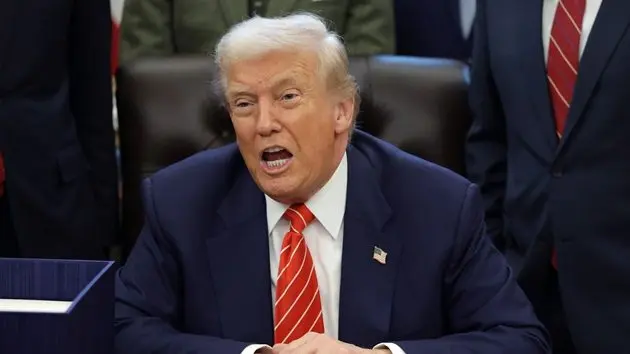
Amid the Trump administration’s battle with Harvard University, hundreds of grants worth millions of dollars for medical research have been canceled.
The White House has accused Harvard of allowing antisemitism to go unchecked on campus and of not ending diversity, equity and inclusion practices.
In a letter on April 11, the Trump administration argued Harvard “failed to live up to both the intellectual and civil rights conditions that justify federal investment” and proposed terms including changing the school’s governance, adopting merit-based hiring, shuttering any DEI programs and allowing “audits” to ensure “viewpoint diversity.” The administration then said it was withholding $2.2 billion in multi-year grants and $60 million in multi-year contract value to the institution.
Harvard has taken steps such as renaming the Office for Equity, Diversity, Inclusion and Belonging to the Office of Community and Campus Life. Additionally, Harvard’s president said the school is committed to making changes to create a “welcoming and supportive learning environment” but argued the Trump administration’s requests go too far.
At least 350 grants from the National Institutes of Health (NIH), National Science Foundation (NSF) and elsewhere been canceled at Harvard Medical School, excluding the School of Public Health and the School of Engineering, a Harvard University faculty source told ABC News.
Harvard has said the loss of research funding interrupts work on topics including tuberculosis, chemotherapy, pandemic preparedness, Parkinson’s disease and Alzheimer’s disease. The school has also said the Trump administration’s threats have endangered its educational mission.
The Trump administration did not immediately reply to ABC News’ request for comment.
This includes research for studying biotic resistance, identifying the earliest precursors of breast cancer, breaking barriers to deliver effective drugs for Alzheimer’s disease, studying microbial evolution and researching cures for ALS.
Scientists at Harvard say the cancellations of their research grants are collateral damage in the battle with the Trump administration and worry some scientific breakthroughs will never be discovered.
“I will say that receiving a grant from the NIH is very challenging,” David Sinclair, a professor in the department of genetics at Harvard Medical School, told ABC News. “It takes years of work and a lot of effort. You have to go through peer review, and it can take years to get this money, and when you get it — I’ve literally dropped to my knees with gratitude of receiving one of these grants. These are a big deal, and they literally are our lifeblood, and to just have that terminated is devastating.”
‘What do I say to her’?
Sinclair was inspired to find a cure for ALS (amyotrophic lateral sclerosis), a debilitating neurological disorder, after his partner’s mother was diagnosed with it.
“We’ve watched her descend from an active, healthy lady in her 70s to now, where she’s on a breathing machine and being saved by a tube,” he said. “And our house is an ICU unit with nurses 24/7 and for us, it’s a race against time.”
Sinclair said within the last month, his lab had a breakthrough using artificial intelligence to find both synthetic and naturally occurring molecules that may reverse the aging process and treat ALS.
Sinclair received word on May 15 that two grants of his were being terminated. One was an NIH grant awarded to Sinclair’s lab on a project to reverse the aging process and the second was a career award given to a postdoctoral researcher in his lab on the ALS project.
The career award grant was paying for the salaries of the researcher and two people working under her. Now all three are effectively without salaries unless another form of funding can be found.
Sinclair said in the interview that he had not told his partner’s mother that the ALS grant has been canceled.
“I just feel so concerned for the patients who, like my partner’s mother, are counting on us scientists to find treatments and cures for what ails them,” he said. “And what do I say to Serena’s mom? I haven’t talked to her yet. What do I say? That the research that looked so promising is now terminated? That her life is counting on us, and she’s just one of millions of people in this country who are counting on the research at Harvard Medical School to make the breakthroughs that will literally save their lives.”
Similarly, on a search for stopping debilitating diseases, Joan Brugge, director of the Ludwig Center at Harvard Medical School, was studying how to identify the earliest precursors of breast cancer with a goal of designing treatments to prevent them from becoming cancerous.
The work was supported by an approximately seven-year grant from the NIH’s National Cancer Institute totaling at about $600,000. The grant was in its sixth year with 1.5 more years left.
Another canceled grant was a fellowship for a postdoctoral researcher in Brugge’s lab. These grants support costs such as training, tuition and fees and child care, according to the NIH.
“These kinds of things are going to affect our ability to make progress in the way we want,” Brugge told ABC News. “This is not right. Why should Americans be deprived of potential benefits from this research?”
Claims of antisemitism
Steven Shuken, a postdoctoral researcher at the Gygi Labs at Harvard Medical School, was studying what the barriers are in developing treatments for Alzheimer’s disease.
He said drugs don’t penetrate the blood-brain barrier very well, resulting in failures to receive FDA approval to treat Alzheimer’s disease.
“They seem to have some effectiveness at some dose, but once you get up to the high dose that you need to see the effect, there are these terrible side effects that come up,” he told ABC News.
In order to improve future drugs’ efficacy and reduce side effects enough to make them safe and effective for Alzheimer’s patients, Shuken teamed up with Boston Children’s Hospital to see if they could leverage the chorid plexis, a section of the blood-cerebral spinal fluid barrier as a pathway without side effects.
Shuken had been awarded a K99/R00 grant, which is for postdoctoral scientists completing research that will eventually lead to a tenure-track or equivalent faculty position.
The K99 portion supports one to two years of postdoctoral research training and the R00 portion supports up to three years “contingent on the scientist securing an independent, tenure track faculty position,” according to the NIH.
Two weeks ago, he received news that the K99 grant – which was awarded last year for two years – was terminated and there is no policy that supports activating an R00 on a K99 that’s been terminated, effectively terminating the R00 as well.
Shuken said no reason was given for the grant terminations, but he said he did see the letter sent to Harvard from the NIH citing semitism.
Trump and other members of his administration have accused the university of fostering antisemitism on its campus, specifically related to pro-Palestinian demonstrations amid the Israel-Hamas war.
“Harvard’s failure to protect students on campus from anti-Semitic discrimination — all while promoting divisive ideologies over free inquiry — has put its reputation in serious jeopardy,” Secretary of Education Linda McMahon said in a letter in March.
The administration’s joint task force, made up of the Department of Education, Department of Health and Human Services and the General Services Administration, is conducting a review of Harvard, saying it is part of an effort to remove alleged antisemitic conduct and harassment.
Last year, a federal judge in Boston ruled that Harvard “failed its Jewish students” and must face a lawsuit over antisemitism on campus. Some Jewish students had claimed Harvard had been indifferent to their fears of walking through the campus and facing alleged harassment from pro-Palestinian protesters.
However, some Jewish students and faculty members, such as Shuken, said he has not experienced antisemitism during his time at Harvard. He said if there is antisemitism occurring on the main campus, he’s not sure why retaliatory grant cuts are affecting the university’s medical school.
“I will note that I work at the Harvard Medical School quad, which is a half-hour shuttle ride away from the main campus,” he said. “So even if there is antisemitism on the main campus, which — as far as I can tell — is dramatically exaggerated in certain news outlets, if it’s happening over there, it’s not happening where I work.”
Michael Baym was also affected by the grant terminations at Harvard. He said there is a disconnect between the political battle raging between the Trump administration and Harvard and the grants awarded to the medical school that were cut as a result.
“Our lab studies bacteria. None of the content of this research is related to a contemporary political or is part of a contemporary political battle,” he told ABC News. “There’s no sense in it. It’s bacteria; how can bacteria be antisemitic?”
Harvard has said it is resolved in its commitment to combatting antisemitism and anti-Israeli bias.
Grants are not gifts to Harvard
Baym’s laboratory at Harvard Medical School studies the biology of how bacteria become resistant to biotics and what things keep them from gaining resistance. The World Health Organization has called microbial resistance one of the world’s top public health and development threats.
Earlier this month, Baym learned that five grants to his laboratory and researchers in his lab were being terminated. This included an NIH five-year flexible award to support all basic research in the lab and two NSF grants, one to help study bacteriophages that kill biotic-resistant bacteria, and the other to help study the basic biology of the vectors of biotic resistance.
Additionally, an NIH graduate student grant for a project looking for new bacteriophages was terminated as well as two NIH postdoctoral fellowships that were on the same grant. The total cost of the grants canceled was $4.35 million.
Baym said what he thinks many people don’t understand is that the grants are not monetary gifts from the government to a rich, private university. They are contracts awarded by panel of impartial experts directly to researchers and to projects. In this case, the researchers happen to conduct their work at Harvard.
“That’s what’s being cut,” he said “These grants, this is not a gift to build a dorm. This is a research contract that’s being terminated, right.”
Michael Desai, a professor of organismic and evolutionary biology at Harvard, who was also subject to grant terminations, agreed, saying the grants don’t support operations of the university and Harvard’s endowment, valued at $53.2 billion, cannot cover all the costs of grants that were terminated.
“There’s all kinds of specific purposes that donors have designated for their money to be spent on,” he told ABC News. “The other thing is that Harvard already spends roughly 5% of the endowment every year. The way to think about it is a retirement account … and it’s supposed to last for hundreds of years, rather than dozens.”
“If they spend more than they already are, then it will, over the course of 10 to 20 years, just be gone, and the university would have to shut down,” Desai added.
Fear of losing scientists to other countries
At the time of the terminations, Desai’s work was focused on microbial evolution and population genetics, which looks at how microbial populations — microorganisms — adapt to new conditions.
Desai had three grants terminated on May 15, two from the NIH and one from the NSF.
The NIH grants totaled about $300,000 to $350,000 per year in direct costs plus a little under $200,000 per year in indirect costs, and the NSF grant was about $100,000 per year in direct costs and another $69,000 in indirect costs, Desai said.
Desai said he wasn’t surprised the grants were terminated due to news that the Trump administration was planning on freezing grant money, but he expressed concern for the younger scientists whose research and salaries were being supported on these grants.
“There’s a battle, as we all know, between Harvard and the Trump administration,” he said. “It centers around things that have absolutely nothing to do with science. There’s broad support for the kind of science we and many other people at Harvard are doing. I don’t think it’s an intended target, but it’s certainly getting caught up in the battle.”
Desai emphasized the broader impact grant freezing could on have U.S. scientific dominance, highlighting the potential for young American scientists to go aboard or international scientists to not come to the U.S.
“Over the past 15 years that I’ve been at Harvard, I can’t think about how many hundreds of emails I’ve gotten from the smartest people in China and India and Europe and all over the world asking if they could come work with me or my colleagues across the country and basically bring all of their talents to essentially work for us, to work for trying to increase the United States’ technological dominance in the world,” he said.
Desai went on, “I kind of worry that 10 years from now, our smartest students are going to be writing professors in research institutes in China hoping that they can go do science to make China stronger. The bottom line is if we don’t invest in this stuff, other people certainly will.”
Copyright © 2025, ABC Audio. All rights reserved.



